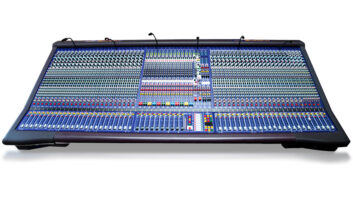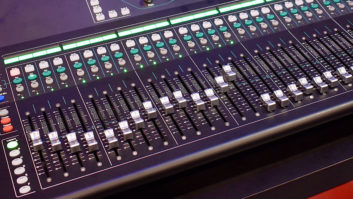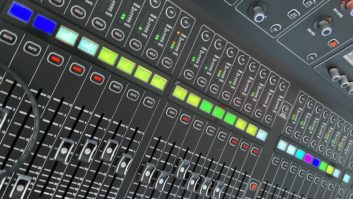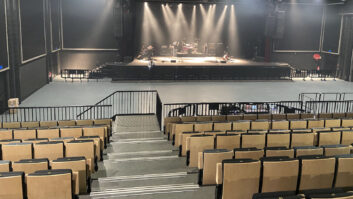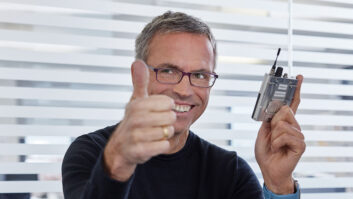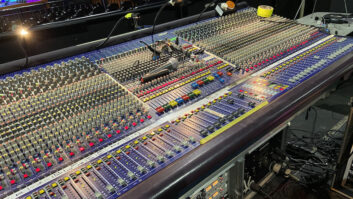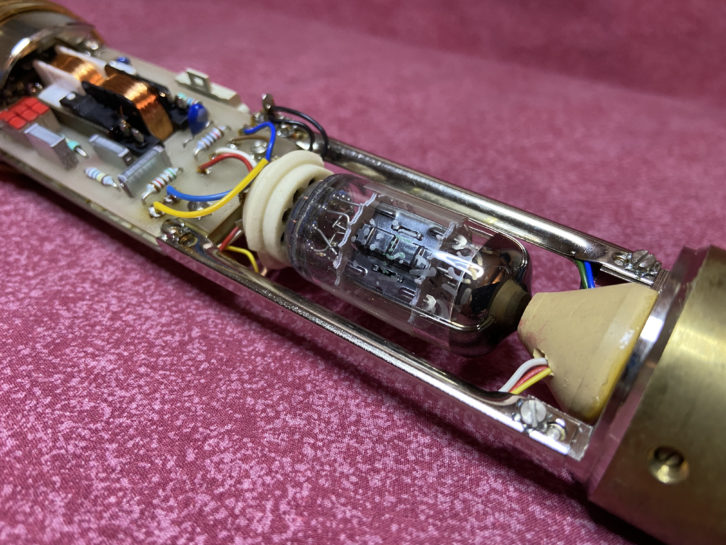
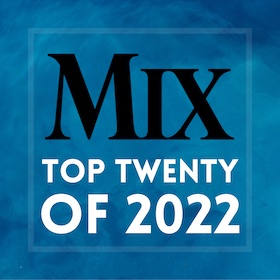 This was Mix’s 13th most-read article of 2022!
This was Mix’s 13th most-read article of 2022!
To the average person, a vacuum tube is something they might see in a scene from a movie, a piece of obsolete technology that Dr. Emmet Brown might use to build one of his contraptions in Back to the Future. Guitar players view the vacuum tube with considerably more reverence, and for many guitar players—no matter how good the current state of amp simulators may be—tubes represent the Holy Grail.
Ask some guitarists to use an amp “sim” and you may find a bag full of transistors being launched in the direction of your head. Then there are the audiophiles who spend thousands of dollars on home hi-fi gear, a good portion of which is tube-based. Heck, you can even buy a CD player with tube-based circuitry.
Against all technological odds, in 2022, the relationship between audio engineers and vacuum tubes remains alive and well. We use tube-based gear in the studio on a daily basis, and stereo tube compressors are routinely patched across the stereo output bus of live sound consoles. Looking around my control room, I see three tube-based mic preamps, three tube-based compressors and enough tube microphones that I should be embarrassed. Why have them? Because they sound good. Certainly not because of convenience.
The vast majority of vacuum tubes are made overseas in China, Russia and Slovakia. A significant number of tubes manufactured by Electro-Harmonix and imported into the United States are made in Russia (EH’s sub brands include Sovtek, Mullard, EH Gold, Gold Lion, Tung-Sol and Svetlana).
Mix Live Blog: Higher Road Expense
Mix Live Blog: A Sigh of Relief After Mixing on the High Seas
U.S.-based manufacturers of vacuum tubes for audio applications can be counted on one hand. Scratch that, one finger: Western Electric, still manufacturing tubes in Rossville, GA. (Editor’s note: A company called RCH Labs was established in 2012 in Carson City, NV, briefly flirted with tube production, and folded in 2016).
Until recently, Western Electric’s main product has been the 300B, a triode amplification tube that’s popular for use in high-end power amplifiers. A pair of 300Bs produce about 20 watts of power, and the WE version sells for the princely sum of $1,500. That’s not a misprint. Fifteen hundred dollars.
That’s a bargain compared to what you’d pay for a pair of NOS (New Old Stock) 300Bs from the 1930s, which would set you back around $20,000. Also not a misprint. Four zeros after the two, for a pair of vacuum tubes. If you can afford the amplifiers that these things go into, you probably won’t worry about what the tubes cost. As an example, the Manley NEO-CLASSIC SE/PP 300B power amplifier retails for around $12,000. It’s a mono amp, so multiply by two if you want to listen in stereo. I’m in the wrong business.
As we know, recent developments in Russia and Ukraine have resulted in world sanctions on Russian exports, and that means Russian-made tubes are in short supply [Please note: I’m here to entertain you for a few minutes, and I am by no means making light of the situation in Ukraine].
Responding to reports of a heart attack epidemic among guitar players who use tube amps, Western Electric announced last month that it will expand production to include a wider range of tubes. WE asked visitors to its website to provide information regarding which vacuum tubes they’d like to see the company produce. When word got out, the guitar-playing community responded in droves, proving to the manufacturer that there is still a viable market for fire bottles.
A questionnaire on the Western Electric website gave respondents choices such as 12AX7, EL34, 6L6, 6V6, EL84, 6H30, KT88, and 274B tubes. It will be interesting to see what vacuum tube(s) Western Electric chooses to produce, and if they will be competitive with their foreign-made counterparts.
Frank Provenzano, 1963 – 2022
It is with tremendous sadness that I share news of the passing last week of Frank J. Provenzano. Frankie was the CEO of ProSho Sound Services based in Staten Island, N.Y. Affectionately known to everyone in the music community simply as “Frankie ProSho,” he was one of those people you could count on to come through in the clutch, and to give you a good laugh along the way. Over the course of his career, Frankie worked on countless concerts, fundraisers and events in an effort to support the local community. He was an amazing engineer and a great guy. Godspeed, Frankie.
